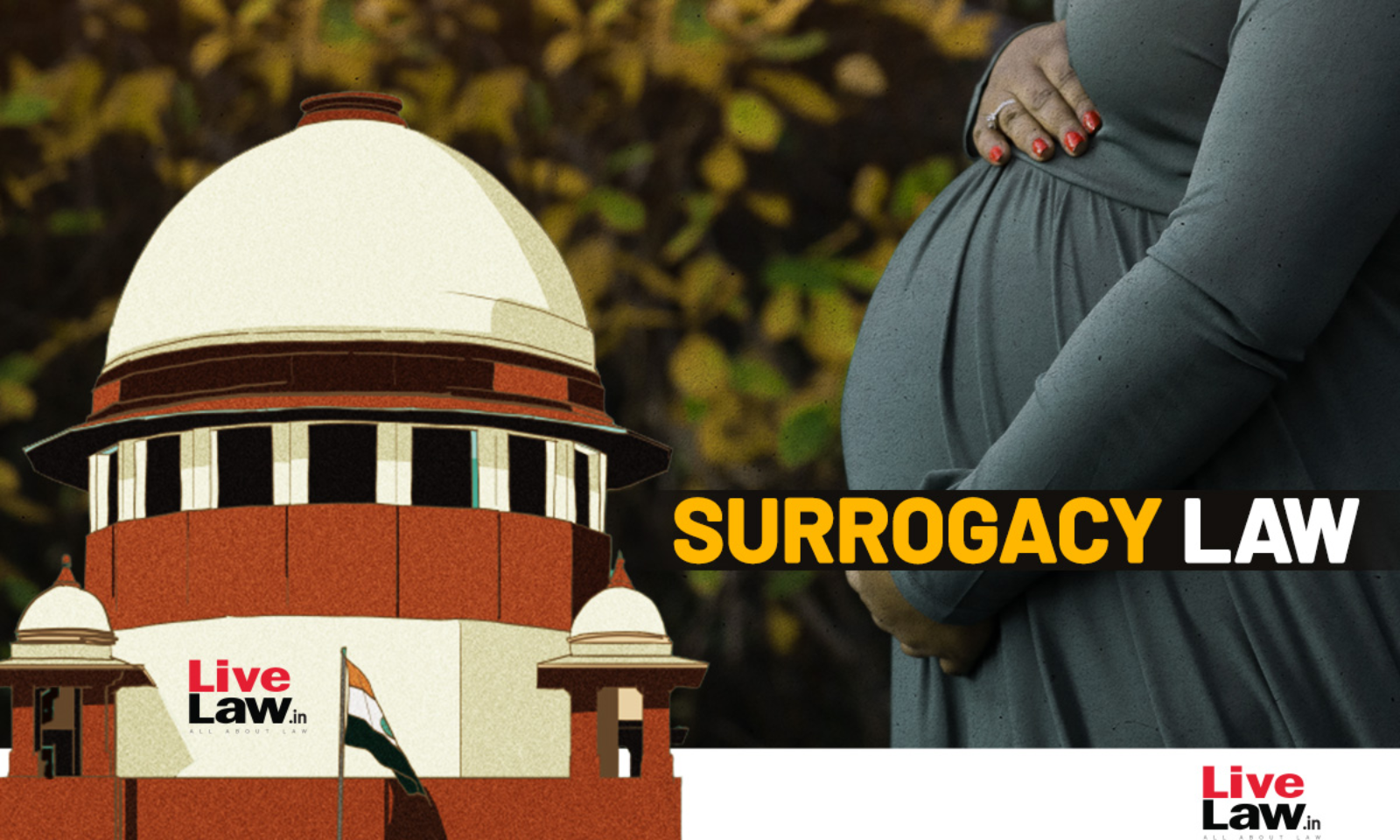October 30, 2023
Landmark Supreme Court Decision Safeguards Women’s Right to Parenthood through Surrogacy

Introduction:
- In a groundbreaking verdict, the Supreme Court of India has unequivocally protected a woman’s fundamental right to parenthood, particularly in cases involving unique medical challenges. The court suspended the enforcement of a recent law that had posed a significant threat to her aspiration of becoming a mother through surrogacy. This monumental ruling not only ensures the empowerment and protection of women facing distinct medical conditions on their journey to parenthood but also sets a precedent for safeguarding the parenthood rights of women across the nation.
Case Overview
Medical Condition: Mayer Rokitansky Kuster Hauser (MRKH) Syndrome
- The petitioner, referred to as ‘Mrs. ABC,’ grapples with the rare Mayer Rokitansky Kuster Hauser (MRKH) syndrome. This condition, confirmed by medical records, entails the absence of ovaries and uterus, rendering her incapable of producing her own eggs.
Gestational Surrogacy as Hope
- Undeterred, ‘Mrs. ABC’ and her husband embarked on the path of gestational surrogacy, a process involving the use of a donor’s eggs. This method allows one person, not providing the egg, to carry the fetus through pregnancy and ultimately give birth on behalf of another individual or couple.
The Threatening Amendment
Prohibition of Donor Gametes
- A government notification dated March 14 of the current year introduced an amendment to surrogacy law. This amendment prohibited the use of donor gametes in the surrogacy process, mandating that intending couples must employ their own gametes.
Violation of Parenthood Rights
- Challenged in the Supreme Court, this amendment was deemed to infringe upon a woman’s fundamental right to parenthood. The court found that it contradicted the core provisions of the Surrogacy Act, both in form and substance.
Gametes Regulation and ART Act, 2021
Definition of Gamete Donor
- Gametes refer to reproductive cells, with male gametes being sperms and female gamete being the ovum or egg cells. The Assisted Reproductive Technology Regulation Act, 2021, defines a “gamete donor” as a person providing sperm or oocyte to enable an infertile couple or woman to have a child.
Court’s Ruling: Embracing Donor’s Gametes
Prima Facie Contradiction
- The Supreme Court Bench issued a resolute order, asserting that the amendment obstructed intending couples from achieving parenthood through surrogacy. It was deemed prima facie contrary to the Surrogacy Act’s intentions.
Petitioner’s Argument and Rule 14(a) Clarification
- Senior advocate Sanjay Jain, representing the petitioner, argued that the amendment invalidated the possibility of gestational surrogacy, which the Surrogacy Act, 2021, recognized as a valid option for couples facing medical conditions. Jain referred to Rule 14(a) of the Surrogacy Rules, emphasizing its explicit listing of medical or congenital conditions, such as the absence of a uterus, as valid reasons for gestational surrogacy. The rule affirmed that the choice was solely the woman’s.
Retrospective Implementation
- The petitioner contended that the amendment could not be applied retrospectively to her case, a plea the court considered.
Court’s Ruling and Interpretation
Woman-Centric Perspective
- The court concurred with Mr. Jain’s argument that gestational surrogacy was inherently “woman-centric.” It acknowledged that the decision to opt for surrogacy was driven by the woman’s inability to become a mother due to her medical or congenital condition.
Validation of Rule 14(a)
- The court emphasized that the amendment could not contradict Rule 14(a), which explicitly acknowledged medical conditions, including the absence of a uterus, as valid reasons necessitating gestational surrogacy.
Genetic Relation Interpretation
- Addressing the government’s contention regarding genetic relation, the court clarified that this related to the husband when Rule 14(a) was applicable.
Conclusion:
- The Supreme Court’s verdict in favor of ‘Mrs. ABC’ not only upholds her right to parenthood but also underscores the crucial role of gestational surrogacy as a woman-centric solution for individuals facing formidable medical conditions on their path to becoming parents. This ruling, a significant milestone, establishes a precedent for protecting the parenthood rights of women throughout India.
January 30, 2025
January 20, 2025
January 14, 2025
